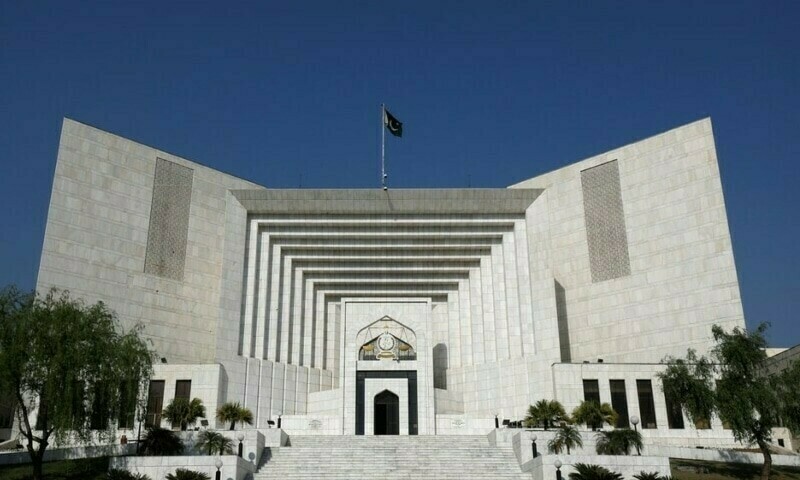ISLAMABAD – The Supreme Court of Pakistan on Tuesday released a detailed verdict in the case of life-time disqualification, ruling that disqualification cannot be more than five years after amendment in the relevant Election Act.
The detailed verdict consisting of 53 pages was penned down by Chief Justice of Pakistan Qazi Faez Isa while Justice Yahya Afridi and Justice Syed Masnoor Ali Shah wrote dissenting notes.
Justice Yahya Afridi ruled that he was disagreed about the decision ending life-time disqualification.
“The disqualification under Article 62 (1)(f) is limited the declaration under the court of law,” Justice Afridi wrote, making it clear that disqualification remains until declaration under the court of law, and decision in Samiullah Baloch was correct in this regard.
Justice Shah in his dissenting note held that life-time disqualification decided in Samiullah Baloch case is hereby set aside, and ruled that the apex court by declaring life-time disqualification tried to rewrite the Constitution.
“After amendment in the Election Act, the disqualification cannot be more than five years,” ruled Justice Shah.
Justice Syed Mansoor Ali Shah also held that the judiciary should dispense justice under the law and the Constitution instead of delivering justice to please the public and get appreciation from them.
The apex court also ruled that in the Panama case, it was not clarified how under Article 184, Section 3, the Supreme Court, or directly the Court of Law, could determine the eligibility of a candidate.
The judiciary, it said, should exercise extreme caution in disqualifying a candidate.
The SC further held that the disqualification of politicians for lifetime is set aside, and after the amendment in the Election Act, disqualification cannot exceed five years’ period.
“Article 62 (1) (f) does not mention disqualification, and if Article 62 (1) (f) is read alone, no punishment can be imposed under it.
The court also decided that determining the role of a candidate is not the job of the courts but rather of democratic societies, not in the Constitution or any law has it been clearly stated which court of law will be the authorized forum to issue a declaration.
The decision held, “Article 184 does not mention what the Court of Law is, Article 184 does not clarify who has issued the declaration, there is no law that clarifies what the procedure for disqualification will be under Article 184.”
In Faisal Vawda case and Allah Deno case, former Judge Umar Ata Bandial nullified his own decision.










